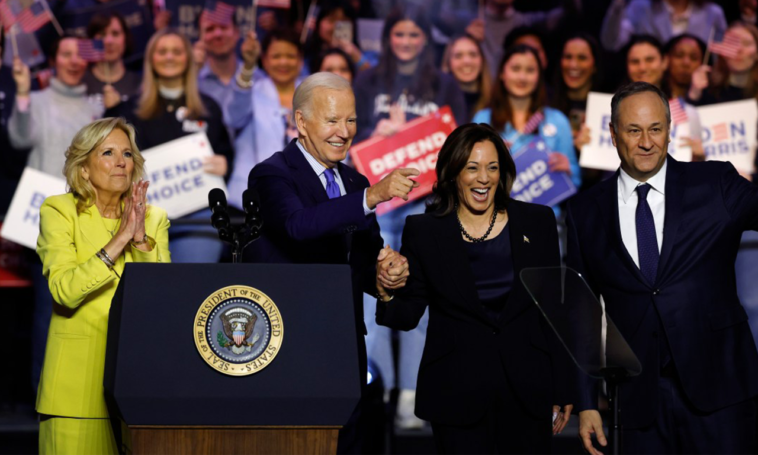SC primary leads where Biden, Harris stand with Black voters. This shift comes as part of the Democratic National Committee’s (DNC) efforts, encouraged by President Joe Biden, to emphasize the importance of Black voters.
Departing from the decades-long tradition of New Hampshire being the “first in the nation,” the DNC made this decision last year to create a primary calendar that better mirrors the diversity of the United States and recognizes the party’s most dedicated voting bloc.
Jaime Harrison, the chairman of the DNC, highlighted the significance of this move, stating, “This is a really, really big deal. Something that no other president ever had the gumption, or even the notion to modify or change. This president did, and that’s because he sees Black folks, understands Black folks, and understands that we matter.”
Black voters in South Carolina played a crucial role in President Biden and Vice President Kamala Harris’s victory in the 2020 election. With over 50% of the Democratic Party’s electorate in the state being Black, their support resurrected the Biden-Harris campaign when it was struggling, following a critical endorsement from longtime South Carolina Congressman Jim Clyburn.
The decision to have South Carolina lead the Democratic primary season holds great symbolic importance. Clyburn emphasized that it demonstrates the existence of a voter coalition essential for Democrats to win in November.
Antjuan Seawright, a Democratic strategist and senior advisor to Clyburn, described it as a profound moment where those who once picked cotton will now play a pivotal role in selecting the leader of the Democratic Party and, ultimately, the President of the United States.
The historical context adds to the significance, considering that 40% of enslaved Africans came through South Carolina’s port of Charleston. For descendants of enslaved ancestors across the country, this primary holds special meaning, marking a historic shift in their role in shaping the nation’s political landscape.
However, despite the symbolic importance of South Carolina leading the primary, polling and anecdotal opinions indicate that some Black voters are less enthusiastic about supporting a second term for the Biden-Harris administration.
A January ABC/Washington Post poll found that Biden’s approval rating was 21 points below average among Black voters. Concerns about the economy and disapproval of the administration’s response to certain international issues, such as Israel’s conflict with Hamas, have contributed to this shift in sentiment.
To address this challenge, the Biden-Harris campaign has been proactive in its outreach to Black voters. The campaign made key hires and initiated early advertising campaigns targeting Black communities over a year ahead of the 2024 Election Day. The campaign aims to counter disinformation and highlight the administration’s achievements, ensuring that Black voters are informed about the positive impact on their communities.
One notable addition to the campaign is Jasmine Harris, who was appointed as the director of Black media. Harris, a former staffer for Sen. Chuck Schumer, brings a wealth of experience to the role. She expressed her gratitude to work on the Biden-Harris campaign, emphasizing the importance of Black reporters and outlets having a seat at the table in shaping the nation’s political leadership.
Jaime Harrison, as the principal deputy campaign manager, emphasized the campaign’s commitment to mobilizing the diverse Biden-Harris coalition. He stated, “Our campaign has already made the earliest, largest investment in Black media for a re-election campaign starting in August of last year and organizing on the ground in key communities.”
Read Also
New York City Council Passes Law Requiring Police Accountability and Inmate Rights






Join the Community and Be a Part of the Conversation
You must be logged in or registered to post a comment.